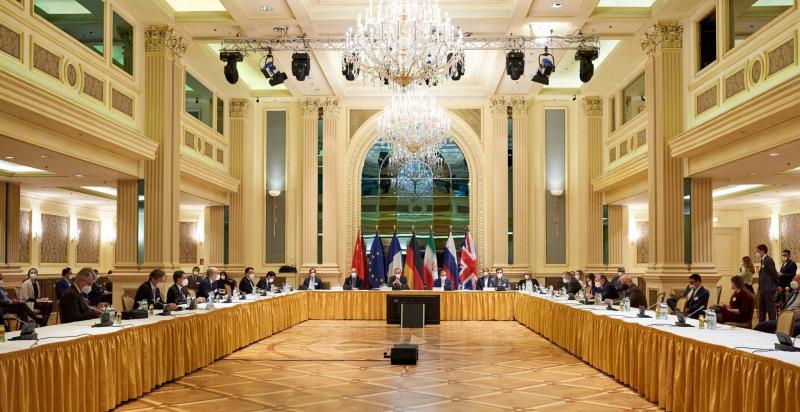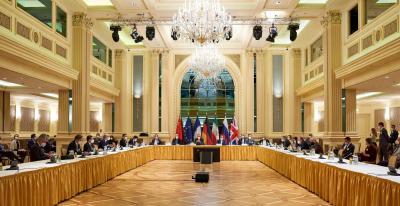The New York Times reported that indications within nuclear negotiations suggest that the final decision to move forward with the deal may come in the coming weeks. The newspaper explained that the ultimate decision to revive the nuclear agreement made in 2015 between Iran and six international powers, including the United States, will likely occur before the inauguration of the new Iranian president, Ebrahim Raisi, while the moderate government remains in power.
Senior aides to President Biden, who have been negotiating with Iranian officials behind closed doors in Vienna since April, believe the moment may have come to restore the old agreement. They assert that the next six weeks prior to Raisi's inauguration offers hope for reaching a final agreement with Iran regarding a decision that Iran has been postponing.
Officials in Washington and Tehran confirmed that Iran's Supreme Leader, Ali Khamenei, wants to revive the nuclear agreement with the West, a deal that President Donald Trump abandoned in 2018 when he reimposed harsh sanctions on Iran. Khamenei's desire stems from wanting to lift the crushing sanctions that have largely kept Iranian oil out of the market, leading to significant economic decline and a sharp currency drop that has plunged much of the population into poverty and unemployment.
According to senior officials, the new agreement would be the same as the old one signed during President Obama’s tenure, but Tehran insists it must be binding on the United States, so no new administration can abandon it as Trump did. The newspaper notes that moderates in Iran will be prepared to shoulder the blame for succumbing to the West and face the backlash of public anger within the country if easing sanctions does not save the ailing economy.
However, if the deal goes through and the local economy recovers, the new conservative government led by Raisi could take credit for saving the country from collapse, reinforcing the narrative that a hardline nationalist government is needed to stand up to Washington.
Some senior U.S. officials stated that during negotiations in recent months, the Iranians made it clear that they believe the sanctions relief obtained in 2015 was insufficient, as it did not allow Iran to carry out various international financial transactions, including through the SWIFT system, which is a complex and secure messaging system used by financial institutions to settle international debts.
The nuclear agreement the Biden administration seeks to return to compels Iran to enrich uranium to very limited purity for peaceful use in exchange for lifting economic sanctions and allowing it access to its frozen funds abroad. However, the agreement faces widespread opposition from Israel and other countries on the opposite side of the Arabian Gulf that have strained relations with Iran.




